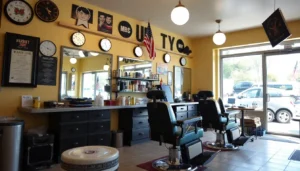Online advertising solutions are essential for businesses striving for digital success. They improve online visibility, improve brand awareness, and drive sales growth. Here’s a quick rundown of their benefits:
- Cost-effective: Compared to traditional marketing, digital advertising offers a higher return on investment.
- Targeted Reach: Target specific audiences based on demographics, interests, and behaviors.
- Increased Site Traffic: Boost web traffic through strategic ad placements.
- Measurable Results: Track and analyze performance to optimize strategies.
These solutions are a crucial part of digital marketing, offering tools and techniques to promote products or services online. Platforms like Google Ads, Facebook, and Instagram provide opportunities to tailor ads to specific audiences, making this approach more effective and efficient.
For a mid-sized e-commerce business owner, understanding and leveraging these tools can transform stagnant sales into sustainable growth. Whether through pay-per-click (PPC), social media advertising, or search engine marketing, online advertising connects your brand with potential customers, enhancing your digital footprint.
Understanding Online Advertising Solutions
Online advertising solutions are essential for businesses looking to thrive in a digital world. Three key components of these solutions include PPC, social media advertising, and search engine marketing. Each plays a unique role in reaching and engaging potential customers.
Pay-Per-Click (PPC)
PPC is a popular form of online advertising where advertisers pay a fee each time their ad is clicked. It’s a way of buying visits to your site, rather than attempting to “earn” those visits organically.
- Quick Results: Unlike SEO, which can take time to show results, PPC campaigns can start driving traffic immediately.
- Budget Control: Set a maximum daily budget to ensure you don’t overspend.
- Targeting Options: Focus on specific keywords and demographics to reach your ideal audience.
Google Ads is a well-known platform for PPC, offering extensive targeting options and a vast audience reach. However, costs can vary based on competition and industry.
Social Media Advertising
Social media platforms like Facebook and Instagram offer powerful advertising tools. These platforms allow businesses to create highly targeted ads based on user data.
- Engagement: Social media ads often lead to higher engagement rates compared to traditional ads.
- Versatility: Use different formats like images, videos, and carousel ads to capture attention.
- Analytics: Access detailed insights to monitor performance and adjust strategies.
Facebook is renowned for offering substantial returns on investment, with businesses often seeing impressive returns for their advertising spend. Many companies experience a significant boost in engagement and sales, making it a go-to platform for online advertisers.
Search Engine Marketing (SEM)
SEM involves promoting websites by increasing their visibility in search engine results pages, primarily through paid advertising. It’s a broader term that includes both SEO and PPC.
- Intent-Driven: Target users actively searching for products or services similar to yours.
- Comprehensive Reach: Leverage platforms like Google Ads to appear in search results and display networks.
- Ad Formats: Choose from text, display, and shopping ads to suit your campaign goals.
While SEM can be more competitive and costly, its intent-driven nature means you’re reaching users already interested in what you offer.
Understanding these online advertising solutions is crucial for businesses aiming to improve their digital presence. Effectively leveraging PPC, social media advertising, and SEM allows businesses to connect with their target audience, driving growth and success in the digital world.
Top Online Advertising Platforms
Selecting the right online advertising platform is vital for achieving digital success. Each platform offers unique features and benefits, making it important to understand how they can align with your business goals.
Facebook: The Social Media Giant
Facebook is a leading platform for online advertising, offering vast reach to diverse audiences due to its extensive user base.
- Advanced Targeting: Target audiences based on demographics, interests, and behaviors using Facebook’s ad tools.
- Variety of Ad Formats: Choose from image ads, video ads, and carousel ads.
- High Engagement: Known for generating high engagement rates, Facebook ads are effective.
Instagram: Visual Storytelling
Instagram, owned by Meta, excels in visual storytelling with its engaging ad formats.
- Visual Appeal: Ideal for brands with strong visual content, Instagram focuses on images and videos.
- Influencer Collaborations: Amplify your reach by partnering with influencers.
- Shopping Features: Streamline the purchase process by tagging products in posts with Instagram Shopping.
TikTok: The Rising Star
TikTok is a favorite for brands targeting younger audiences with creative video content.
- Engaging Video Ads: TikTok’s algorithm promotes engaging and entertaining content, making ads feel less intrusive.
- Influencer Partnerships: Tap into creators’ follower bases by collaborating with TikTok influencers.
- Personalized Content: Enhance ad effectiveness with TikTok’s machine learning, which tailors content to user preferences.
LinkedIn: B2B Marketing Powerhouse
LinkedIn is the go-to platform for B2B marketing, offering a professional audience and niche targeting options.
- Professional Audience: Reach decision-makers and industry leaders.
- Content Promotion: Share valuable insights and articles using Sponsored Content.
- Lead Generation: Simplify the process of collecting user information with LinkedIn’s Lead Gen Forms.
Pinterest: Creative Discovery
Pinterest is perfect for brands targeting a creative and predominantly female audience.
- Visual Discovery: Users visit Pinterest to find new ideas, making it ideal for showcasing products.
- Promoted Pins: Encourage user interaction by blending seamlessly with organic content.
- Niche Targeting: Reach specific demographics interested in DIY, home decor, fashion, and more.
Understanding the strengths of each platform allows businesses to effectively leverage these online advertising solutions to engage their target audience and drive digital success.
Effective Online Advertising Strategies
Mastering online advertising solutions is essential for achieving success in today’s digital world. Let’s delve into some of the most effective strategies that can help you connect with your audience and enhance your business.
Geofencing
Geofencing is a robust tool that enables businesses to target customers based on their location. By establishing a virtual boundary around a specific area—such as a competitor’s store or a popular event—you can deliver personalized ads to potential customers as they enter the zone. For local businesses like plumbing companies, geofencing can help target potential customers searching for emergency services in real-time
- Real-Time Engagement: Engage with customers as they shop or explore nearby areas.
- Competitive Edge: Attract customers visiting competitor locations with enticing offers.
Influencer Marketing
Influencer marketing utilizes the trust and influence that social media personalities have with their followers to enhance your brand’s presence. By partnering with influencers, your brand can tap into their dedicated audience, boosting both visibility and authenticity.
Content Marketing
Content marketing focuses on creating valuable and relevant content to attract and engage your target audience. This strategy builds trust and establishes your brand as an industry authority.
- Educational Content: Provide valuable insights and practical tips to help your audience tackle common challenges, enhancing their understanding and trust in your brand.
- SEO Benefits: Quality content that addresses user intent not only improves your search engine visibility but also draws in more organic traffic, leading to higher engagement and conversions.
Email Marketing
Email marketing remains a staple for building and maintaining customer relationships. It’s a cost-effective way to deliver personalized messages directly to your audience’s inbox.
- Targeted Campaigns: Segment your audience for custom messaging.
- High ROI: Email marketing consistently delivers strong returns on investment.
Search Engine Marketing (SEM)
SEM involves using paid advertising to increase visibility on search engine results pages. This tactic helps you reach users actively searching for products or services you offer.
- Immediate Results: Paid ads appear at the top of search results, driving instant traffic.
- Precision Targeting: Use keywords to reach users with high purchase intent.
Mobile Advertising
With the rise of smartphones, mobile advertising has become essential. This approach targets users on their mobile devices through apps, social media, and mobile-friendly websites.
- Location-Based Ads: Use GPS data to deliver relevant ads based on user location.
- Interactive Formats: Engage users with interactive ads like swipeable carousels or playable demos.
These strategies are not one-size-fits-all. Tailor your approach to suit your business goals and audience needs. Leveraging these online advertising solutions equips you to navigate the digital landscape and achieve your marketing objectives.
Online Advertising Solutions for Small Businesses
Small businesses often face the challenge of advertising on a tight budget. But don’t worry—there are plenty of budget-friendly options that can help you reach your audience effectively without breaking the bank.
Budget-Friendly Options
Social Media Advertising: Platforms like Facebook and Twitter offer cost-effective advertising solutions. You can set a daily budget, ensuring you only spend what you can afford. Plus, the cost-per-click (CPC) and cost-per-impression (CPM) models give you flexibility in how you pay for ads.
Search Engine Marketing (SEM): Google Ads and Bing Ads provide pay-per-click (PPC) options. You control your costs by setting a maximum daily budget. This way, you reach users actively searching for your products or services.
Niche Platforms: Consider advertising on platforms like Reddit and Quora. These sites offer niche targeting at potentially lower costs, making them a great option for businesses with specific audiences.
Targeting Tools
Effective targeting is crucial for maximizing your ad spend. By using advanced targeting tools, you can ensure your ads reach the right people.
Demographics and Interests: Social media platforms let you target users based on age, gender, location, and interests. This precision helps you connect with those most likely to be interested in your products.
Behavioral Targeting: Platforms like Google Ads use user behavior data to show ads to people who have shown interest in similar products or services. This increases the chances of conversion.
Location-Based Targeting: Use geofencing to target potential customers in specific areas. This strategy is particularly effective for businesses that rely on local foot traffic.
ROI Optimization
Getting the best return on investment (ROI) is essential. Here are some tips to optimize your campaigns:
A/B Testing: Test different ad variations to see what resonates best with your audience. This helps refine your messaging and creative elements for better performance.
Conversion Tracking: Use tools like Google Analytics to track how users interact with your ads. This data helps you understand what’s working and where you can improve.
Continuous Optimization: Regularly review and adjust your campaigns based on performance data. Small tweaks can lead to significant improvements in ROI.
Small businesses can compete effectively in the digital space with the right online advertising solutions. By choosing budget-friendly options, utilizing advanced targeting tools, and focusing on ROI optimization, you can maximize your marketing efforts and grow your business.
Frequently Asked Questions about Online Advertising Solutions
Understanding online advertising solutions might seem overwhelming given the multitude of platforms and strategies. Let’s simplify this by tackling some frequently asked questions to empower your advertising journey.
What is the most effective online advertising platform?
Facebook and Instagram are among the most effective platforms. With billions of active users, they offer extensive reach and advanced targeting options. You can target audiences based on demographics, interests, and behaviors, ensuring your ads reach the right people and increase conversion chances.
These platforms also provide various ad formats, such as image, video, carousel, and story ads. This flexibility allows you to tailor your message and engage users creatively.
What are the types of online advertising?
Online advertising includes several types, each offering unique benefits:
- Social Media Advertising: Platforms like Facebook, Instagram, and TikTok reach large, engaged audiences. They offer diverse ad formats and detailed targeting options.
- Content Marketing: This involves creating valuable content to attract and engage your audience. Blog posts, videos, and infographics can drive traffic and build brand awareness.
- PPC (Pay-Per-Click): Platforms like Google Ads charge you each time someone clicks on your ad. This model is excellent for targeting users actively searching for your products or services.
- Mobile Advertising: As mobile usage increases, advertising on apps and mobile-friendly sites becomes crucial. Mobile ads can be customized to specific devices and locations.
How can small businesses leverage online advertising effectively?
Small businesses can make a significant impact with limited budgets by focusing on targeting, budget allocation, and campaign optimization.
Targeting: Use advanced targeting tools on platforms like Facebook and Google Ads. Pinpoint your audience based on location, interests, and behaviors to ensure your ads reach those most likely to convert.
Budget Allocation: Start with a small budget and gradually increase it as you identify what works. Platforms like Facebook allow you to set daily or lifetime budgets, keeping your spending in check.
Campaign Optimization: Regularly review your ad performance. Use A/B testing to find the best-performing ad elements and adjust your strategy accordingly. Tools like Google Analytics provide insights into user behavior, helping you refine your approach for better results.
These strategies enable small businesses to effectively use online advertising solutions to boost their presence and achieve digital success.
Conclusion
Digital success is within reach for businesses of all sizes, and Scale by SEO is here to help you achieve it. With their unique approach that blends human expertise with AI innovation, they craft customized content that lifts your online presence and resonates with your audience.
In the digital world, having a custom strategy is key. Scale by SEO specializes in creating content that is precision-crafted to boost search rankings. This approach not only improves visibility but also aligns with your brand goals. Whether you’re a small business owner or part of a larger enterprise, their solutions can adapt to your needs.
Online advertising solutions are more than just a tool—they’re a pathway to connect with your audience in meaningful ways. By leveraging platforms like Google Ads and Facebook, businesses can target their ideal customers with precision. The right strategy can transform clicks into conversions, turning potential leads into loyal customers.
Scale by SEO’s expertise ensures that your content not only ranks well but also engages and converts. Their commitment to staying at the forefront of SEO best practices means you can trust them to guide your digital marketing efforts effectively.
Ready to take your brand to new heights? Find how Scale by SEO can help you achieve digital success through their innovative solutions. Learn more about their services and start your journey today!











